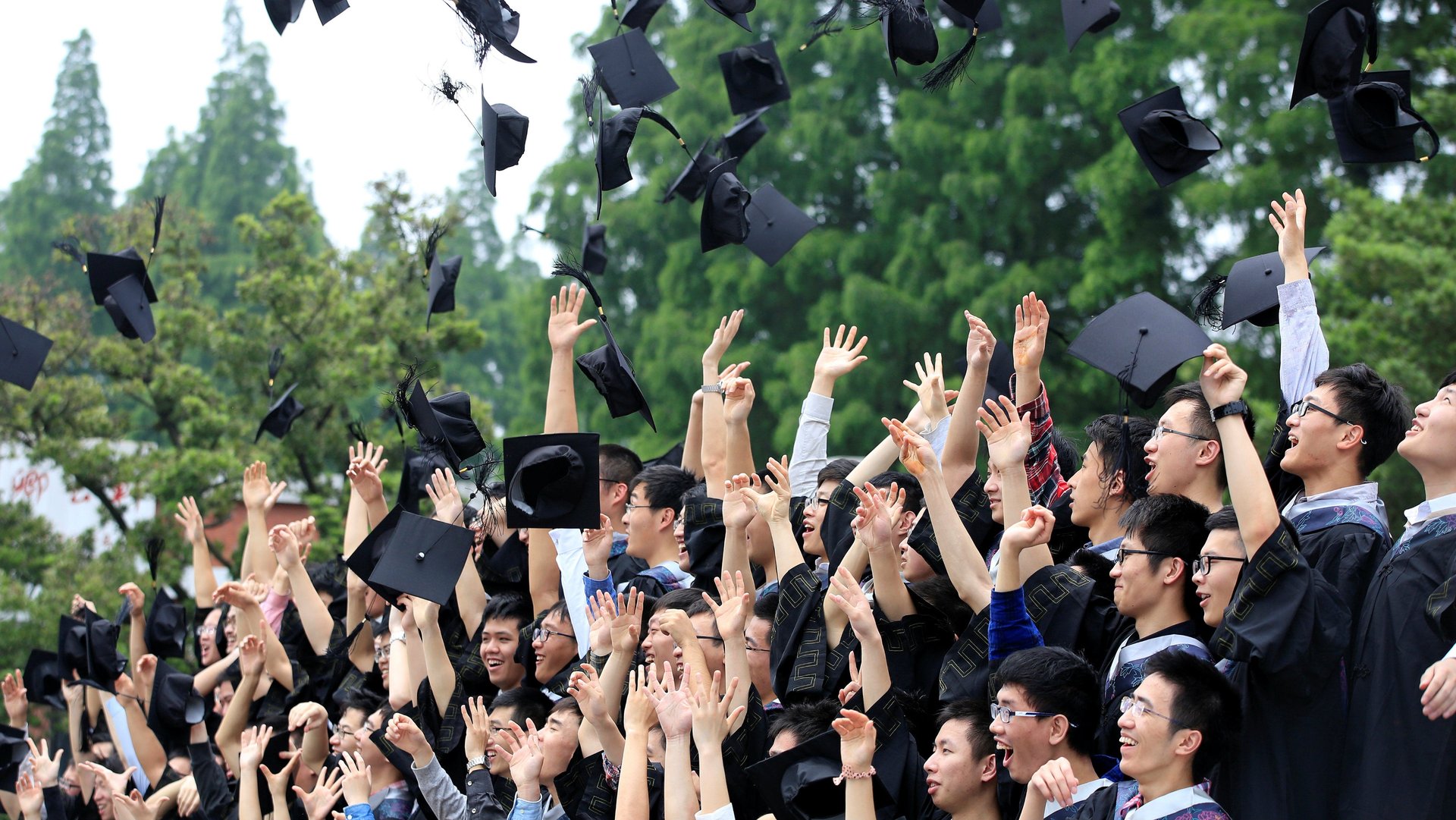The Chinese government just issued a new set of rules for foreign students studying in China
The Chinese government has issued new guidance for China’s universities, on how to manage students from overseas.


The Chinese government has issued new guidance for China’s universities, on how to manage students from overseas.
Like many of China’s updates on regulations, there’s a lot that formalizes standard bureaucratic procedure, or prescribes standards that most observers would consider innocuous and within reason. Article 13 states that Chinese universities can accept international transfer students. Article 19 states that schools can let foreign students write their theses in languages other than Chinese.
Yet other parts of the guidance follow the Communist party’s ongoing attempts to re-assert its influence over academia. The document—issued jointly (link in Chinese) on June 2 by the ministry of education, the ministry of public security, and the ministry of foreign affairs—serves as a reminder that foreign students won’t be exempt from these efforts.
For example, Article 25 states: “Institutes of higher education must demonstrate to foreign students, with Chinese law and regulations, school regulation, national spirit and school spirit, and traditional Chinese culture and custom and other elements in its education content.”
Article 27 notes that schools may provide locations for student to celebrate traditional Chinese holidays, but “must not have content that opposes or attacks other countries or peoples, or [promotes] illegal public movements.”
And Article 29 states: “Institutes of higher education must respect the customs and religious beliefs of international students, but cannot provide places for religious activity. Proselytizing, religous gatherings, or religious activities are not permitted on campus.”
Article 37 warns that applications from students representing non-Chinese diplomatic or consular organizations may be treated under separate rules set and carried out by China’s ministry of foreign affairs, and that schools might not necessarily accept students as a result of these regulations.
None of these regulations should shock anyone who follows how China governs its own citizens and students. Under president Xi Jinping, constraints on academic freedom have been noticeably tightened. In December, the head of state made a high-profile speech stating that universities “must adhere to the correct political orientation.” Professors have been sacked from their positions for infractions such as speaking to foreign journalists or making politically sensitive statements on social media.
Meanwhile, the number of overseas students studying at Chinese universities has swelled. Foreign enrollment in 2016 rose 11.4% to 404,000, according to education ministry figures. This number might yet grow as more non-Chinese universities open joint-venture campuses in China, and as Chinese universities set up satellite campuses abroad.
And Chinese students are already studying overseas in droves, with admissions to US-based universities up fivefold between 2004 and 2014. Amid this surge, some observers have voiced concerns that the Chinese government is using student organizations as a proxy to promote its political agenda overseas—namely, one that hushes views that contradict those of the party.
Earlier this year, the Chinese consulate in London reportedly attempted to shut down an appearance by Anastasia Lin, a human rights activist critical of China, at Durham University in the UK. Last week, academics at the University of Sydney claimed that Chinese consular officials urged the school to reconsider hosting a forum discussing the 1989 Tiananmen protests. And throughout the semester, Chinese students at the University of California, San Diego, have voiced their opposition to an upcoming commencement speech by the Dalai Lama.
Nonetheless, Chinese students studying abroad enjoy freedoms they otherwise wouldn’t have. The new guidance for handling foreign students in China is a reminder that these freedoms likely won’t be reciprocated.